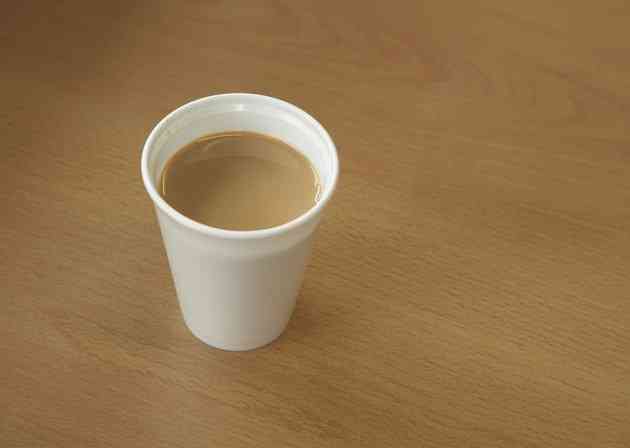Does Coffee Prevent Weight Loss?

People wake up each morning to the smell of hot coffee brewing. Coffee and the caffeine it contains offer a tasty way to kick-start the day, so it's no surprise that, according to Beverage Answers, an estimated 400 billion cups of coffee are consumed worldwide each year. Many people drink coffee in the hope that it will aid their weight-loss efforts. While some research suggests it might, experts differ greatly on whether coffee is a dieter's friend or foe.
 Drinking too much coffee may sabotage your weight loss efforts. (Image: Lite Productions/Lite Productions/Getty Images)
Drinking too much coffee may sabotage your weight loss efforts. (Image: Lite Productions/Lite Productions/Getty Images)Coffee's Impact on Metabolism
An early study published in the American Journal of Clinical Nutrition exploring the effects of caffeine and coffee on metabolic rate suggests that coffee can increase your metabolism and be an aid in weight loss. The study showed that the calorie-burning effect of a meal was significantly greater after drinking coffee. Researchers concluded that coffee increases metabolic rates as well as the body's ability to break down large food particles into smaller ones, known as fat oxidation, in people of normal weight.
Painless Workouts
According to scientists at the University of Georgia, drinking about a cup coffee before you start exercising curtails muscle pain while working out. With less pain during your workout, you may exercise longer and more frequently, increasing the calories your body burns. The results of another study, this one conducted by Robert Moti, a health professor at the University of Illinois-Champaign, concurs. Moti's research points to caffeine's effect "on a nerve signal processing system in the brain and spinal cord linked to pain."
Impedes Restful Sleep
Because coffee is a stimulant, drinking too much of it may keep you awake at night, compromising your seven to nine hours of restful sleep. Research by scientists at the University of Chicago shows a correlation between lack of sleep and weight gain. "Not getting enough REM and 'slow wave' sleep lowers a body's BMR [basil metabolic rate] and decreases nocturnal growth hormone secretion," said Dr. David Edelson, medical director of HealthBridge. Studies show that coffee can also increase your body's leptin and insulin resistance. "All of these factors will get in the way of your attempts to control your weight,” he added.
Coffee Jitters With Cream
Drinking coffee might make you edgy, restless and anxious. In fact, some studies speculate that coffee contributes to weight gain simply because you might eat more when you are nervous. A great contributor to coffee weight gain is the line of espresso and latte drinks available at fast food restaurants and specialty coffee shops. These drinks not only increase the jitters with their high caffeine content, but they increase the risk of obesity with their high calorie content, according to Harvard School of Public Health.
Other Health Considerations
A modest and inverse relation to weight gain was discussed in a study by the Department of Health and Nutrition Sciences, Brooklyn College. The researchers suggest that drinking coffee may actually result in decreased weight. Since the improvement was modest, the study cautioned against consuming coffee as a weight-loss aid. Coffee also may raise blood pressure, the study found, stating "Caffeine and caffeinated coffee have been shown to acutely increase blood pressure and thereby to pose a health threat to persons with cardiovascular disease risk."




